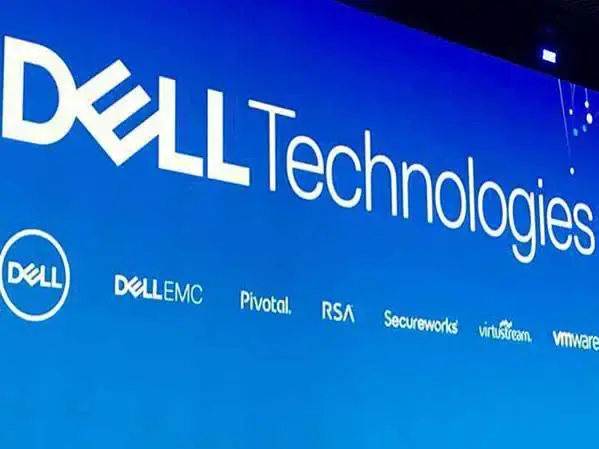Dell COO Jeff Clarke Says 2024 'Didn’t Go As Planned' But Expects AI-Fueled Rebound
Dell Technologies’ market-leading servers, networking, and storage categories were whacked 12 percent by a frame that saw enterprise customers withhold infrastructure spend, even amid the much ballyhooed generative AI boom.

Dell Technologies sales were down everywhere last year.
The Round Rock, Texas-based technology giant’s annual sales came in at $88.4 billion, off 14 percent from a year before and $13.5 billion less than its record $101.9 billion haul in 2022. The company’s fiscal year ended Feb. 2.
Its market-leading infrastructure catagory decreased 12 percent to $33.8 billion in a frame that saw global enterprise customers withhold spend, even amid the much ballyhooed generative AI boom.
“What we’re really waiting on is that large corporate, global, multinational enterprise business and its natural I think for them to be cautious given the macroeconomic, geopolitical and interest rate environment we have found ourselves in over the last several quarters,” Tyler Johnson, Dell’s senior vice president and treasurer, told analysts on Thursday’s call. “That’s the verticals that we are really looking to come back later this year.”
[RELATED STORY: Dell Technologies Killed ‘Significant And Complex’ Five-Year Deal With VMware, Two Years Early]
Dell’s servers and networking business was down 14 percent annually hitting $17.6 billion in sales. Storage performed the strongest of the categories down nine percent.
“FY24 was one of the those years that didn’t go as planned,” said Dell COO Jeff Clarke. “But I really like how we navigated it. We showed our grit and determination by quickly adapting to a dynamic market, focusing on what we can control, and extending our model into the high growth AI opportunity. Our operating margin rate improved as we delivered higher gross margins with disciplined operating expense management.”
Dell carried out two rounds of layoffs in 2023, with an early round of 6,650 in February and a second in August where the number of jobs cut was not disclosed.
Dell’s PC sales also fell sharply in 2023 off 16 percent overall, but down 28 percent among consumers. This after falling 20 percent among that group last year as well. Clarke said Dell is facing an install base of PCs that was “never bigger” and “never older” and it believes this year, those will be refreshed.
“PCs isn’t an area where we are seeing an upside yet,” Clarke said. “Do I expect the PC market to be bigger in calendar 24 than in calendar 23? Yes. Do I think the PC market is bigger in the second half of 24 than it is in the first half? Absolutely so. Hence our remarks that the opportunity in PCs is second half driven by an install base that’s never been bigger and older than it is today.”
Those remarks are similar to what then-Dell Technologies Co-COO Chuck Whitten said during Q1 of fiscal 2024 when he was asked by analysts about the company’s lagging PC sales. Whitten resigned in July.
“So you have a commercial PC installed base that's at the highest levels that we've seen since 2014, given that we're now entering the fifth quarter of a commercial PC downturn that is typically 4 to 6 quarters in length,” Whitten said in the June 2023 earnings call. “All of that points to improving sequential growth as the year progress. When and how fast that recovers, to be determined. But we certainly see customers having stretched a very large commercial installed base for some time.”
For the fourth quarter, sales Dell’s sales were $22.3 billion, down 10 percent year over year, with net income $1.15 billion, for an earnings per share of $1.59, up 89 percent.
Clarke was also pressed about generative AI and how much of the $152 billion total addressable market Dell has called out. He was asked if Dell’s leading positions in server and storage would translate to this new market.
“The inside baseball view here is we are leading the market and we continue to expect to lead the market with our broad capabilities going forward. I believe it’s reasonable, how we think about this internally, that we have our target set on having a larger percentage of this market than we do in our traditional market places. That’s inclusive of the PC. I think one of the things that makes us special and different here is that we can reach a large set of customers from the smallest businesses in the world to the largest multinationals in the world.”
Clarke said Dell has expanded the Dell Generative AI Solutions portfolio with support for the AMD Instinct MI300X accelerator in Dell PowerEdge XE9680 servers and the new Dell Validated Design for Generative AI with AMD ROCm-powered AI frameworks.
Additionally, Dell introduced new enterprise data storage advancements and planned validation with the Nvidia DGX SuperPOD AI infrastructure, helping customers quickly access data for AI workloads with Dell PowerScale systems.
He said Dell will have the broadest portfolio of commercial AI laptops and mobile workstations, that will come installed with AI acceleration with the addition of the neural processing unit 2 (NPU).
Despite the glum numbers, Dell’s stock rose 18.25 percent in after-hours trading after the company beat analyst expectations and said it would increase its annual cash dividend 20 percent to $1.78 per common share.
Dell is optimistic about the rest of the year. The firm expects to return to growth in both infrastructure and PC sales this year.
“There are several trends that give us confidence in our view of FY25,” said Dell CFO Yvone McGill. “First the momentum around AI. Second, the improvement we are seeing in traditional servers and third, the aging PC install base that is due for a refresh.”
Dell said it expects revenue for this coming fiscal year to come in between $91 billion and $95 billion, with ISG to grow in the mid-teens “fueled by AI,” McGill said. Dell’s CSG business is on track to grow in the low single-digits, McGill said.